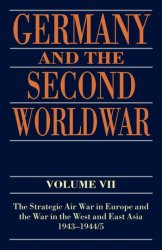Theophanes’ work exemplifies the rather different perspective of those writers
whose main concern wasGod’s plan for mankind since the creation, and
matters bearing directly on faith and the church. The realms of the ancient
Persians, Assyrians and Macedonians played a part in their story, as did all
the vicissitudes of Israel, and the deeds of early Christian Roman emperors
were of interest. But these authors’ approach to the latter was coloured by
their maintenance of what the authors deemed to be orthodoxy: heretical
or simply immoral emperors were condemned and their deviation might
be expected to incur God’s wrath; the author’s task was, in that case, to
chronicle their misdeeds, and the consequent disasters.
Theophanes’ composition covers the period from the reign ofDiocletian
(284–305) until 813, but he was finishing off the opus of George Synkellos,
whose universal chronicle had aspired to an accurate continuous chronology
of events since Genesis.42 Eusebius and JohnMalalas had also traced events
from the beginning, with somewhat different agendas, and this form of
broad-sweep writing was popular with the Byzantines. Later writers such
as the twelfth-century John Zonaras continued the tradition, tacking on
synopses of events closer to their own time (albeit without yet gaining
English translators).43 Thus the recording of political and ecclesiastical
occurrences was partly done by churchmen or pious laymen who accepted
the empire as divinely instituted but whose standpoint towards individual
emperors was semi-detached, when not rather hostile.
A different perspective comes from works focused on the empire’s earthly
fortunes, but likewise drawing on heterogeneous texts over a lengthy period.
One such is that of John Skylitzes, covering the period from Michael I’s
accession in 811 until the later eleventh century. Skylitzes recast a medley of
earlier works, including part of the text known as Theophanes Continuatus
and, probably, the memoirs of a general, written in his disgruntled retreat
and recounting his exploits from Armenia to Sicily.44
Thus events of the earlier and middle empire are relayed by a variety
of voices now available in English. Their coverage is, admittedly, mainly
of politico-military and ecclesiastical affairs, and the variations all pay at
least lip service to the idea that the ideals of orthodoxy and empire were
interdependent, although not all writers considered them identical.




 World History
World History









